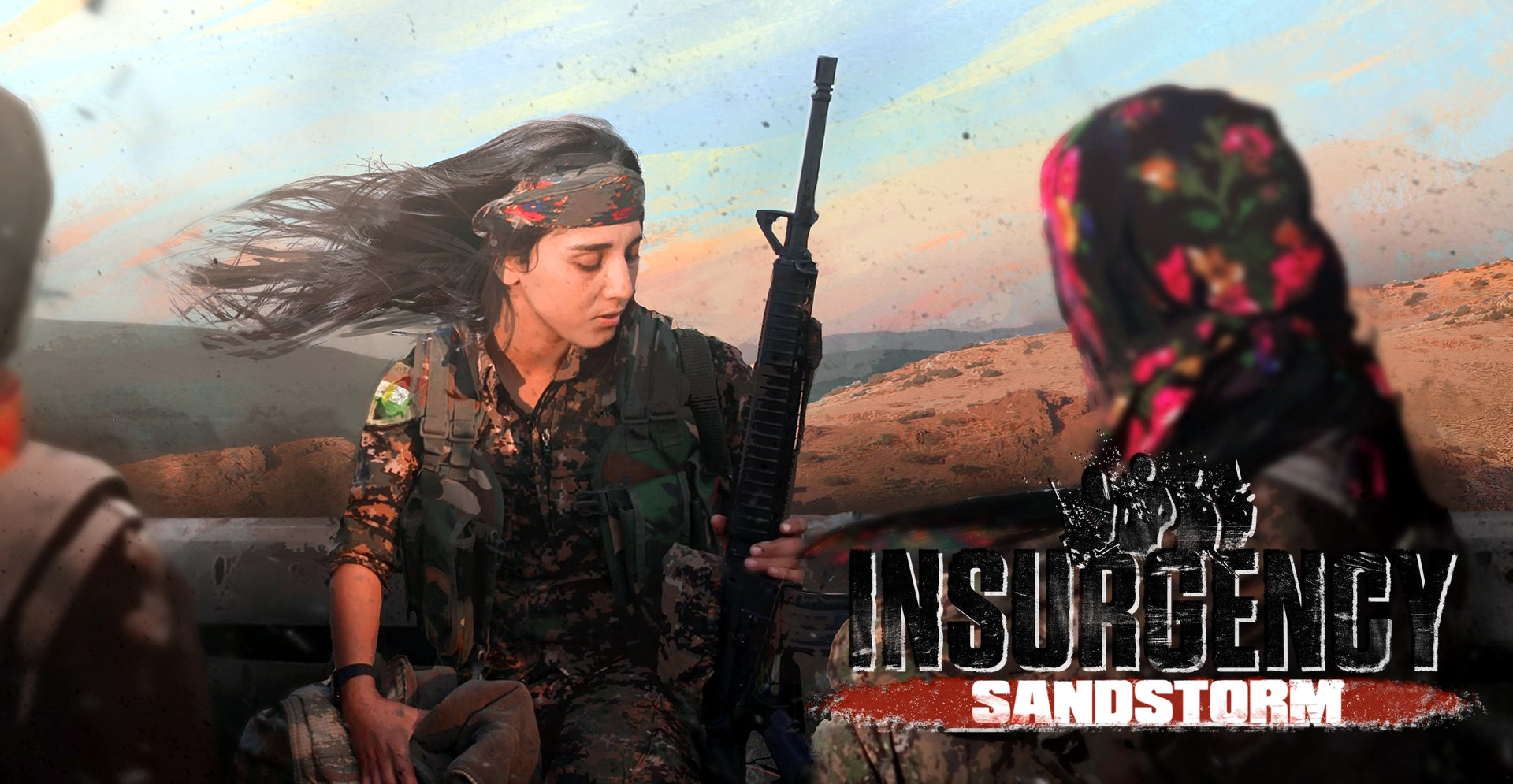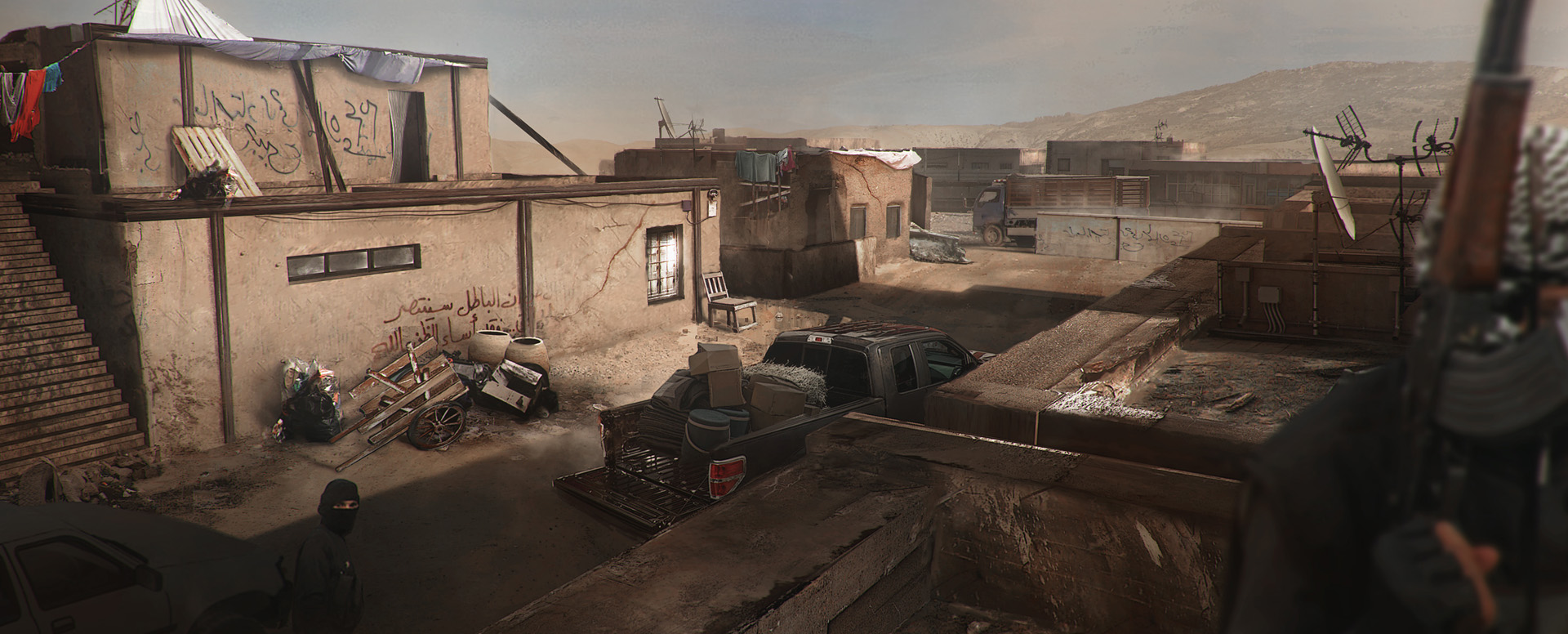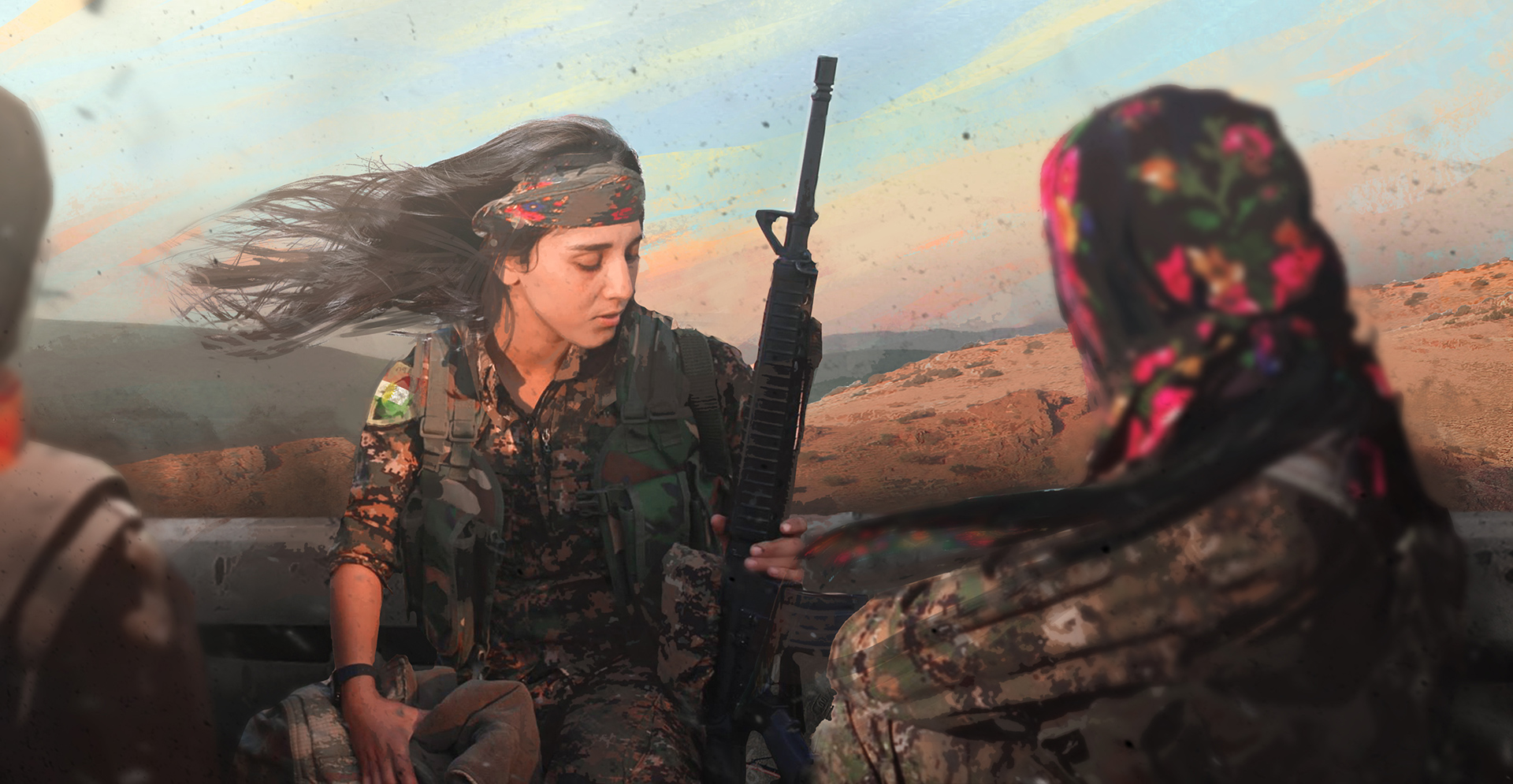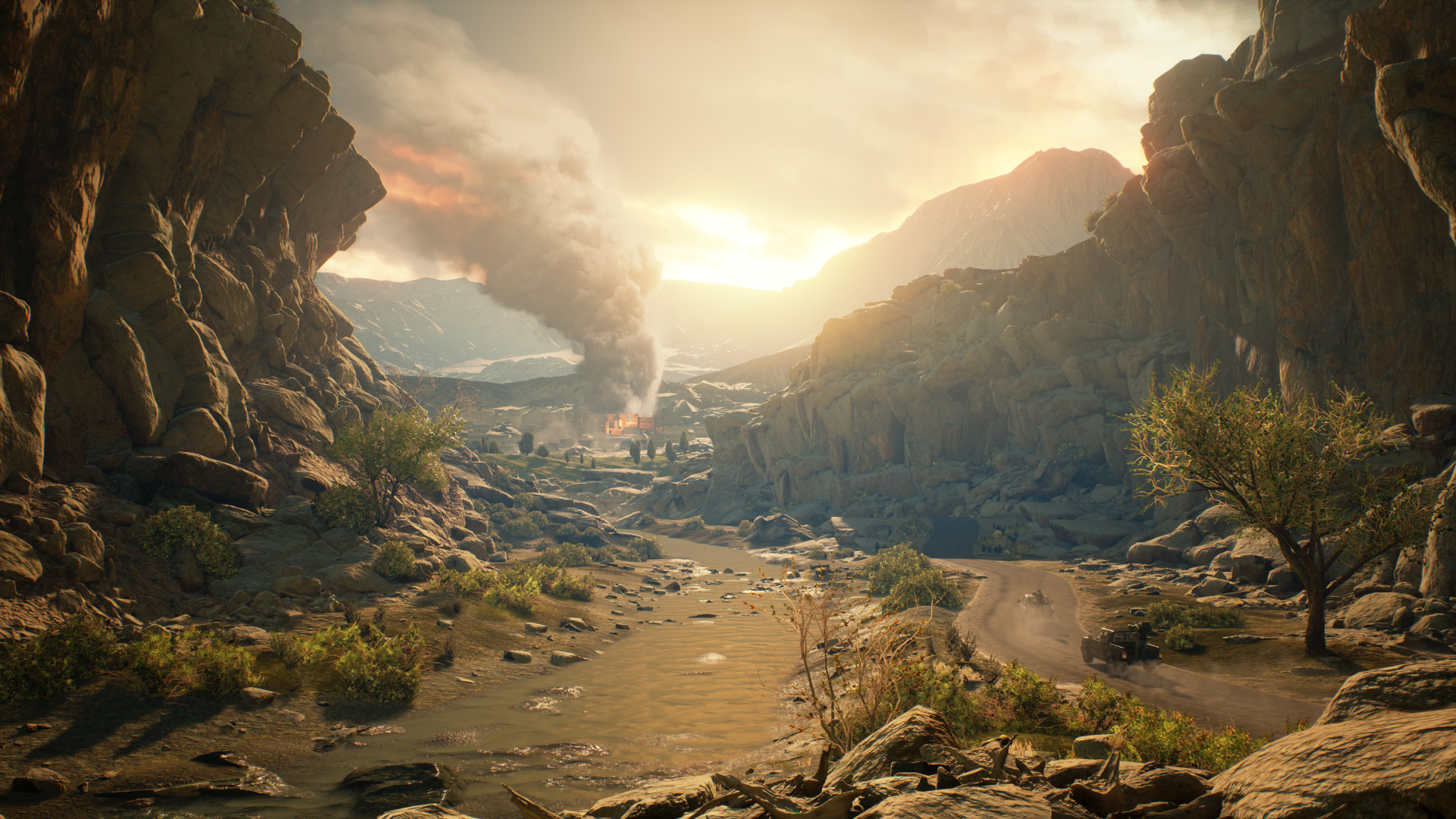Insurgency: Sandstorm was one of the biggest surprises from E3 2017, if not the biggest. In case you missed this one, here’s a quick summary of the single player campaign, new to the Insurgency franchise: this is a first-person shooter in which you play a Kurdish woman who just escaped slavery, and is now fighting a group of “radical terrorists” as a rebel militant in Iraq.
Yep. That’s not what you typically the kind of plot you expect from a video game, much less a franchise famous for its multiplayer leanings. It would be a risky proposition for any studio, full of pitfalls left, right, and center. Sandstorm will also get the multiplayer treatment the series is known for, but I was more interested in the plot.
To learn more, I spoke with none other than developer New World Interactive Founder and CEO Jeremy Blum to get the details.
Cliqist: What has some of the feedback been so far?
Jeremy Blum: It’s been interesting. Fans of Insurgency and Day of Infamy overall seem very excited. Some have expressed skepticism or lack of interest in certain aspects of the game – the story mode and the inclusion of vehicles being the most commonly discussed. Others have expressed dissatisfaction with the graphics, animations or voice acting in our recent story trailer.
None of the feedback has been surprising or new for us. As an independent team with a budget a fraction the size of a AAA FPS developer, we have become accustomed to being an underdog. A lot of people told us during Insurgency’s early access, for example, that the game would die before it was even released. Now it is owned by over 3.5 million people and has a 91% user rating on Steam.
With Insurgency, our focus on gameplay and innovative design proved successful, especially when combining this with an iterative approach of improving the experience alongside the community. We aim to do the same with Sandstorm, collecting feedback from our fans later this year when we begin Closed Alpha testing. We will analyze this feedback to determine what is needed to bring the game to release, and what the best time frame for launch might be.
Cliqist: Your previous games have largely been multiplayer games. What led to you create a single player campaign this time around? What’s the transition been like into also including a single player campaign?
Blum: We have been interested in storytelling for a while, and felt that if we were going to be successful on console it was something the game would benefit from. It’s been a great learning experience for us as a team to write a story, dialog, use motion capture, animate faces, create cutscenes, etc. Our team still has a lot to improve on in this area but has so far really enjoyed this type of work.
While we are working on the story, we are focused on the multiplayer and cooperative experience first and foremost. This is Insurgency’s “bread and butter” so-to-speak. It’s what people expect to be great in this game. We need to nail this experience before we are able to move on and finalize the story aspect.
Cliqist: Have you found anyone saying you’re trying to cash-in on a modern conflict, or that you shouldn’t make a game about such a topic? I was reminded of Konami’s Six Days in Fallujah that was actually canceled due to the backlash of it being set in the Iraq War. What do you have to say to those people?
Blum: It’s better for thrill-seekers fascinated by war to participate in a digital depiction of it rather than actually enlisting and contributing to the perpetual destruction we are seeing around the world. We see ourselves as doing a positive thing, letting people get a glimpse of this experience in a harmless way rather than enlisting and potentially getting themselves killed. We are also honoring those who we see as the heroes and casualties of this conflict. At least, this is how we see it, as artists living in a society that allows us to freely depict what we choose.
Cliqist: Why take the risk with a modern day conflict?
Blum: We see it as more of a responsibility to deliver our fans a proper Insurgency sequel. If it’s okay for film directors to explore modern conflict it should be just as okay for video game creators to do so. We consider our games nothing short of art, which has been depicting modern conflict for hundreds of years through paintings, literature and film. We don’t see what we’re doing as any different.
Cliqist: What made you want to tell the story of a Kurdish woman? That’s not a perspective we’ve ever seen.
Blum: When we got into storytelling, we decided as a team that we wished to create stories that were meaningful and different than what our audience is used to. When we were looking for inspiration for the story, we dove deep into research and brainstorming. The process eventually led us to the story of these women, their male counterparts and also the volunteer (sometimes referred to as vigilante) fighters fighting alongside them. We found their situation, diversity and motives to be unique, noble and worth immortalizing in video game form. Despite the fact that our game is fictional, these fighters and their struggle greatly inspired the character development in our world.
Cliqist: Is there any statement you’re trying to make with the single player story?
Blum: The story is still in a pretty early stage of development, so we feel it would be inappropriate to comment on its message or meaning. We don’t want to compromise or spoil the story in any way, and furthermore it is still very much a work in progress and certain things might still change.
Cliqist: Is the terrorist group you’re fighting ever directly referred to as ISIS, or is that somewhere you’re just not willing to go?
Blum: The enemy in the story is not ISIS, but rather a fictional group of separatists who share similar behaviors. The Insurgents you play as in multiplayer are not the same – they are a separate rebel group similar to the original Insurgency.
Cliqist: Why do you think there haven’t been any games willing to tell a similar story to what you’re telling here?
Blum: In the past, mainstream publishers have been fairly conservative and risk-averse in their approach to storytelling. While these publishers have traditionally dominated the gaming world and resisted any sort of profound change, the rise of indies has prompted a drastic shift in the industry. With indies becoming financially successful in their overtly artistic and risk-taking approach, publishers have been prompted to think differently themselves.
There have been some examples of mainstream publishers going against the norm when it comes to “sensitive” storytelling. Konami’s Six Days in Fallujah was ultimately shut down because of the pressures it faced, but Rockstar’s Grand Theft Auto did no such thing when confronted with a massive outcry against the game’s killing of police and beating of prostitutes. Mafia 3 continues this trend with its realistic depiction of racism in New Orleans in the 1960s. Take-Two never stopped sticking to their guns, distributing the games they knew their audience wanted to play despite people trying to stop them – exercising their artistic freedom. Now we see Ubisoft opening up to this with Far Cry 5’s depiction of religious extremism in America, and we are ourselves working with a forward-thinking publisher in Focus Home Interactive on this title.
With the shifting paradigm of our industry as well as the socio-political disillusionment many in the world feel right now, it may not be very long before we see more developers and publishers telling stories which are in fact relevant and meaningful to the world.
***
Insurgency: Sandstorm currently has a late 2017 release date. Keep your eyes right here at Cliqist.com for more coverage of this game in the future.






